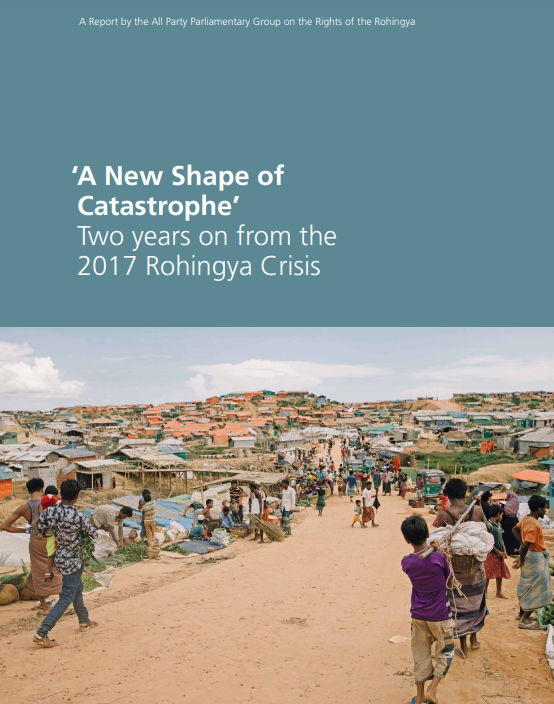Anne Main: Rohingya must be given a voice at repatriation talks
Speaking in a debate on refugees and human rights, Anne Main calls on the UNHCR to ensure the Rohingya are given a voice at the repatriation talks and that any repatriation of the Rohingya cannot take place while their very existence is not recognised by the Burmese government.
This process has, then, been going on for an extremely long time. Those of us who have visited the sites and camps—right hon. and hon. Members from both sides of the House—have seen the atrocious conditions these people are being forced to live in. We would all accept that a basic human right is the freedom to worship as we see fit. The one thing that joins the Rohingya in solidarity with their brothers and sisters in Bangladesh is their religion. Unfortunately—it is a sad story to tell—the Buddhist community is complicit in and accepting of the driving out of the Muslim population that are the Rohingya. Yes, some Hindus have been forced out as well, but overwhelmingly it is the Rohingya, who are Muslims, who are being driven out. It is that link—of humanity and religion—that opens the arms of Bangladesh.
I am pleased that repatriation is no longer being considered, because the memorandum of understanding did not mention the word “Rohingya”. How can there be no voice for the Rohingya at the negotiating table? It is totally unacceptable that the oppressors, who are land-mining the border and driving people out with machine guns, and who have denied these people their rights since 1982, should be divvying up the role of the Rohingya and their future. It is no surprise that there have been marches and resistance on the camps to any talk of repatriation. How can anyone accept being asked to go back to a country where their existence has been denied since 1982? That needs to be dealt with as much as anything.
Does the hon. Lady share my concern at the British Government’s involvement in the last census in Burma, which we paid for but which made no mention of the Rohingya? We should be exercising our duty as the census payer to make sure the Rohingya are included?
It was an international effort, I believe, but the hon. Gentleman is absolutely right. It is unacceptable that they are not on that census. This is not a simple problem, however. I mentioned that there were 135 ethnic communities. That is part of the issue: Burma is a fractured country. It is not a case of just getting our finger out. This could be a very dangerous situation for some of the other groups in the country. I am concerned that this be dealt with appropriately. My plea, given that they have been shattered for so long, is that somehow the Rohingya be given a voice. I understand that Ata Ullah is not an acceptable voice, as he is leading a resistance group, but there must be someone who can speak up for the Rohingya. They are a “talked about” and “done to” group, and that cannot be right.
I encourage the UNHCR to do all it can, but the reality is that Burma is blocking, and while I can understand Bangladesh’s need to solve this crisis, it is not a signatory to the 1952 convention; it is acting out of humanity and love for its fellow Muslims. That said, it is a poor country. It is in receipt of a lot of international aid, but it cannot continue with this on its shoulders. We must keep driving forward to find someone who will sit at the table and say what the Rohingya want to happen, otherwise the rioting and unrest in the camps will continue. The worst thing we can do is insist that people go back to a country where they are denied even their existence.
Earlier intervention in the same debate
Does my right hon. Friend, like me, welcome the fact that the proposed repatriation has now been suspended, as announced on Monday? The right hon. Member for Islington South and Finsbury (Emily Thornberry) did not refer to that. I welcome it because absolutely no guarantees have been given on the safety of any returning Rohingya.
The honest truth is that people are having to recognise that we are talking about a long-term, protracted refugee stay in Bangladesh. There is no quick return. We cannot ask people to return to a situation after they were expelled with maximum force, violence and horror. Although the agreement between the Governments of Myanmar and Bangladesh to return people over a two-year period is a welcome sign of intent, it cannot possibly have any serious basis unless we know that people are going to be safe. People cannot be returned on any other basis. The honest truth is that we have to be prepared for this to take time. We are pushing not only for the work that we do in Cox’s Bazar itself, but for a role for the international community in monitoring any return, with the UNHCR taking the lead.
DISSOLUTION OF PARLIAMENT
Watch: Anne Main, chair of the All Party Parliamentary Group on Bangladesh, talks about the Rohingya crisis and urges support for @DECappeal pic.twitter.com/FFL0lq8O0A
— DFID (@DFID_UK) October 12, 2017

